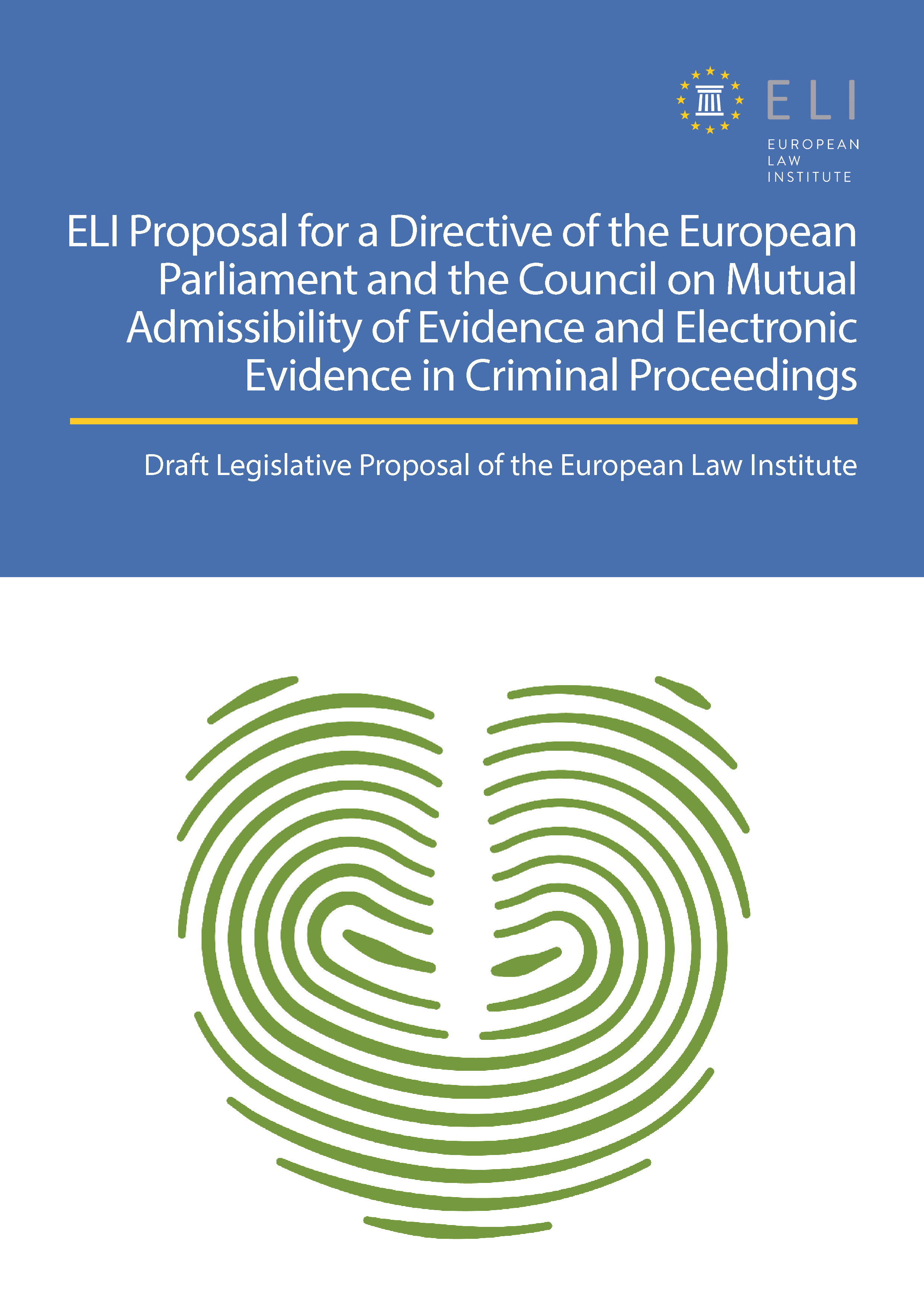ELI Proposal for a Directive of the European Parliament and the Council on Mutual Admissibility of Evidence and Electronic Evidence in Criminal Proceedings
Quick Facts
Project Output: Draft Legislative Proposal
Procedure: Regular
Adopted: CD 2020/23
Project Period: September 2020–May 2023
Events
An overview of past and upcoming events of this project is available here.
Publications
Further publications about the project are available here.
Summary
The Project Team developed a Proposal for a Directive of the European Parliament and the Council on Mutual Admissibility of Evidence and Electronic Evidence in Criminal Proceedings, which provides guidance on future EU legislative action in the field. It aims at harmonising approaches in EU Member States and, through it, enhancing the principle of mutual recognition in criminal matters and the protection of human rights of suspects and accused.
Background
At present, each EU Member State follows its own rules on criminal investigative measures for evidence gathering, resulting in different standards for its admissibility. When such evidence, including electronic evidence, is to be shared with other EU Member States, a clear mechanism governing its admissibility is needed.
While there have already been a number of helpful studies on the admissibility of evidence in criminal proceedings and the need for more harmonisation at EU level as well as important advances in European judicial cooperation, these initiatives have so far not comprehensively addressed the rules that should be adopted regarding the mutual admissibility of cross-border evidence, including electronic evidence.
Aim
The ELI Proposal aims at providing guidance on future legislative action on article 82(2)(a) of the TFEU and at presenting a draft legislative proposal on common standards for the admissibility of cross-border evidence, including electronic evidence, in criminal matters between Member States.
Such common standards could contribute to enhancing the principle of mutual recognition of judgments and judicial decisions in criminal matters having a cross-border dimension, as well as strengthen the protection of human rights of suspects and accused in the area of freedom, security and justice.
Outcome
The Project Team developed a Proposal for a Directive of the European Parliament and the Council on Mutual Admissibility of Evidence and Electronic Evidence in Criminal Proceedings.
In doing so, they sought to achieve the right balance between defence safeguards and protection against crime by establishing a general rule of admissibility of cross-border evidence, as long as the lex loci is complied with and no inalienable constitutional rights in the forum State are violated. Control over how evidence is obtained abroad is already set out under article 14(7) of the Directive on the European Investigation Order. The Proposal gives force to that rule and also provides mechanisms to the defence to ensure that this control is enforced.
The ELI Proposal also promulgates certain standards on the gathering of electronic evidence in order to provide certainty for defendants as well as to facilitate the ‘free circulation’ of such evidence, ensuring its authenticity and integrity and thus its admissibility as evidence.
Project Reporters
Advisory Committee Members
Observers
- European Commission (represented by Tania Schroeter and Sveva Franco)
Members Consultative Committee
- Raquel Abajas
- Joseph Davids
- Mustafa Ebaid
- Gerhard Fiolka
- Sonia Nuez Rivera
- Oriola Sallavaci
- Justyna Sarkowicz
- Peter Schneiderhan
- Ingo Klaus Wamser

